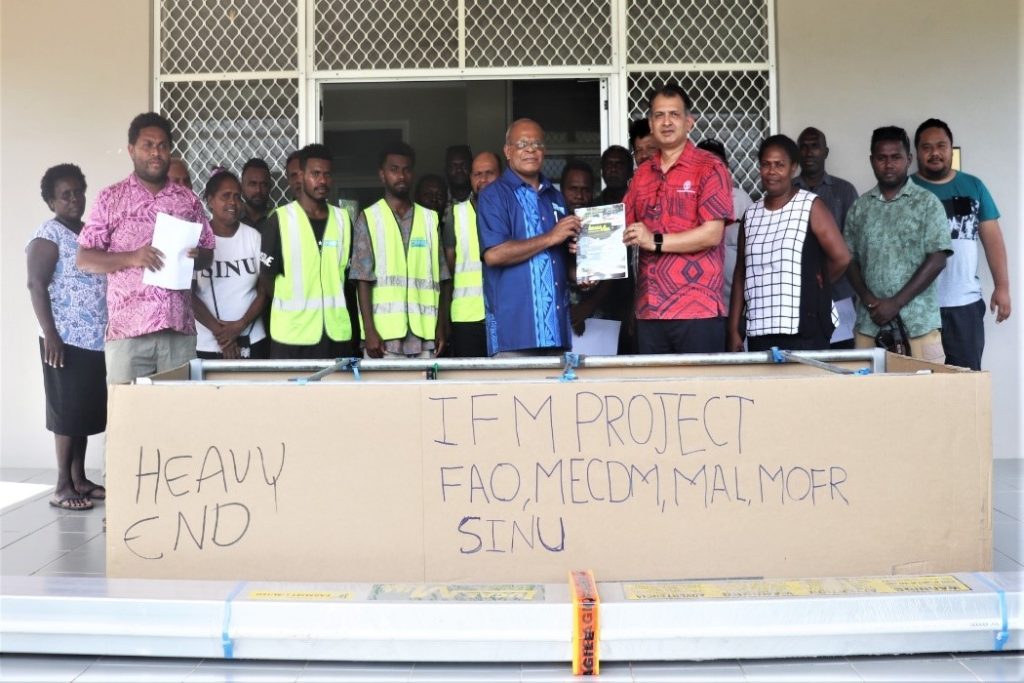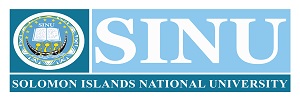
The Forestry Department under the Faculty of Agriculture, Fisheries & Forestry (FAFF) recently took ownership of a new Lucas Mill.
Huge thanks to the Food and Agriculture Organization (FAO) for donating the Lucas Sawmill under the Integrated Forest Management Project.
The new Lucas Mill was officially handed over to the Solomon Islands National University (SINU) Forestry Department in a brief handover ceremony FAFF on Friday, 1st March 2024 witnessed by representatives from both SINU and FAO.
Speaking during the handover ceremony, the Head of the Forestry Department Carlos Hiro said the donation of the Lucas Mill by FAO represents not only a valuable addition to the department’s resources but also a symbol of collective commitment to nurturing the next generation of forestry students.
According to FAO Forestry Officer Raushan Kumar, the donation of the Lucas Mill is a long pending commitment from FAO under the integrated Forest Management Project.
“This Lucas sawmill was supposed to be here actually last year, but it couldn’t happen because of some technical issues like; technical capacity, technical specification not matching and we wanted to have a sustainable kind of a robust system that can run for at least few years continuously so that was the reason today it is here.”
“Why the Lucas Sawmill was brought into the SINU is a very interesting story.”
“When we started having the stakeholders’ consultations people were saying that you know we are going to promote conservation, promote forestry enhancement, forest governing enhancement, why are we giving instruments which cut the forest?”
“This question was posed to us, but the answer lies in a different perspective.”
“The answer is that there is a lot of logging happening in the country, how can we reduce it?”
“The answer is downstream processing, the answer is value addition to the timbers, so that while processing the timber in the country you get most of the revenue.”
“You will be exporting less round logs to different countries, reducing logging activities and reducing pressure out of the ecosystem.”
“So that was the idea to train the youths on how to process the timber in house and add value and get better value out of it.”
“So that was the reason this particular training was foresighted at that point of time.”
Mr Kumar further stated, “The second reason was that when we started establishing the bachelor degree in forestry and bachelor degree course in environmental studies, this particular item was also one of the practical courses which needed to be taught during the practical sessions of the bachelor degree in forestry course including the diploma course.”
“So that is why this instrument is here, that is why FAO is committed to have a sustainable knowledge base built in the country and as you know that FAO is also a knowledge organization and we support this initiative.”
“We are pleased to invest in such activities and are fully committed to providing additional opportunities to SINU through this project. We encourage SINU to explore technological advancements, and we assure you that we will remain available for support, both during and beyond the lifespan of this project. Feel free to reach out to us at any time.”
Speaking in response to Mr. Kumar, the SINU Institution Planning Division (IPD) Darius Darlyn Ramo thanked FAO for the significant support towards the SINU Forestry Department.
The IPD Director said SINU as the leading institution in the country, highly values such partnership with FAO and is looking forward to further fruitful collaboration in the future.
End////////////////////
